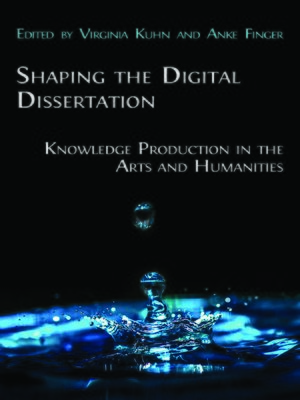Shaping the Digital Dissertation
ebook ∣ Knowledge Production in the Arts and Humanities
By Virginia Kuhn

Sign up to save your library
With an OverDrive account, you can save your favorite libraries for at-a-glance information about availability. Find out more about OverDrive accounts.
Find this title in Libby, the library reading app by OverDrive.



Search for a digital library with this title
Title found at these libraries:
| Library Name | Distance |
|---|---|
| Loading... |
Digital dissertations have been a part of academic research for years now, yet there are still many questions surrounding their processes. Are interactive dissertations significantly different from their paper-based counterparts? What are the effects of digital projects on doctoral education? How does one choose and defend a digital dissertation? This book explores the wider implications of digital scholarship across institutional, geographic, and disciplinary divides. The volume is arranged in two sections: the first, written by senior scholars, addresses conceptual concerns regarding the direction and assessment of digital dissertations in the broader context of doctoral education. The second section consists of case studies by PhD students whose research resulted in a natively digital dissertation that they have successfully defended. These early-career researchers have been selected to represent a range of disciplines and institutions. Despite the profound effect of incorporated digital tools on dissertations, the literature concerning them is limited. This volume aims to provide a fresh, up-to-date view on the digital dissertation, considering the newest technological advances. It is especially relevant in the European context where digital dissertations, mostly in arts-based research, are more popular. Shaping the Digital Dissertation aims to provide insights, precedents and best practices to graduate students, doctoral advisors, institutional agents, and dissertation committees. As digital dissertations have a potential impact on the state of research as a whole, this edited collection will be a useful resource for the wider academic community and anyone interested in the future of doctoral studies.







